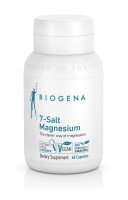It’s March. Nature is reawakening. Budding leaves and flowers as well as the first warming rays of sunshine herald the long-awaited spring. Not only the natural world is returning to life – we humans are also responding to rising temperatures and increased daylight with a renewed thirst for action. Our motivation is at its peak, and the spirit is willing. It’s the perfect time to take advantage of this increased motivation and get moving after spending many a winter’s day indoors. Anything goes – if you’re having fun. However, you should always have a place in your sports bag for the proper micronutrients, which can be useful tools for your workout.
Starting training: gradual increase instead of overexertion
After the usual “winter break”, light endurance sport is perfect for getting back into the swing of things. Whether it’s cycling, jogging, or walking – the activity should be fun and not cause too much strain. Otherwise, your body may react with signs of overexertion. Strength training is an ideal complementary exercise to slow endurance training. It increases mobility and contributes to a constant build-up of muscle. The strengthened muscles in turn stabilize the spine and joints, which is ideal for preventing injuries. For noticeable success, exercise should be increased gradually (e.g. an extra five minutes per exercise unit every 2–3 weeks). A training schedule with fixed days is also a good idea because this can help you overcome your inner couch potato.
Micronutrients: tools for your workout
Draw on unlimited resources. Whether it’s hiking, walking, or even long-distance running, endurance training requires not only mental stamina but also physical stamina. An optimal supply of energy in the mitochondria – the powerhouses of our cells – is particularly important for intensive endurance workouts. Inside these tiny cell organelles, energy-supplying macronutrients (e.g. carbohydrates or fats) are converted into usable energy. Certain B vitamins (B1, B2, B6, biotin, niacin, and pantothenic acid) as well as iron, iodine, and magnesium, which contribute to normal energy metabolism, are essential for this process. This makes them ideal workout tools for all endurance sports in which we have to draw on unlimited energy resources.**
Successful mineral trio. Well-fitting running shoes and breathable functional clothing – proper sports equipment is the key to success. Our most precious equipment – apart from mental strength – is a powerful musculoskeletal system and a healthy cardiovascular system. A good supply of the omega-3 fatty acids EPA and DHA helps support our hearts. A daily intake of 250 mg of EPA and DHA contributes to normal heart function. Potassium, magnesium, and calcium are also important because they support normal muscle and nerve functions. Potassium also supports the maintenance of normal blood pressure, while magnesium and calcium contribute to bone maintenance. It is therefore all the more important that athletes pay special attention to these minerals. When we sweat, certain minerals are lost in large quantities and must be replenished.
Turn on the waterworks. Speaking of sweat…it keeps the body from overheating. A loss of nutrients leads a drop in performance but not as rapidly as dehydration. The amount of sweat depends on the intensity of the activity. One of the front-runners in terms of fluid loss is probably long-distance running. On average, 3–4 l of fluids is lost through breathing and the skin. It is therefore all the more important to drink liquids in small portions during endurance exercise. Carbohydrate-electrolyte drinks also make sense for longer periods of strain. As a rule of thumb: every 1 l of sweat should be replenished by an additional 1.5 l of liquid – not to mention lost electrolytes. Special attention should be paid to the minerals potassium and magnesium mentioned above. Magnesium also contributes to maintaining the body’s electrolyte balance and reducing fatigue.
High-performance athletes: reinforcing the immune system. While moderate exercise has a relaxing effect and can boost our immune system, intensive training sessions can overtax it. During intensive endurance training, athletes can also support their immune functions with selected micronutrients such as vitamin D, zinc, and vitamin C. The latter two also protect our cells against oxidative stress, which can be caused by the increased occurrence of free radicals released during exercise.
Success begins in the mind. Fighting spirit, strong nerves, and self-confidence: successful athletes know every trick in the book. No matter how technically adept, agile, or strong an athlete is, without mental strength, he will never be able to exploit his full potential. The good news: mental strength can be trained – just like endurance, muscle strength, or technique. This can be done by using relaxation techniques, mental exercises, or other methods. Micronutrients such as vitamins B1, B6, or B12 can also support the nervous system and the psyche during periods of physical exertion. Pantothenic acid is also worth mentioning in this context. It contributes to a normal mental performance.
Working at full strength. Classical strength athletes are not the only ones who can benefit from targeted strength training. Strength also plays an important role in high-speed sports (e.g. football, handball, and martial arts) and endurance athletics (e.g. climbing, rowing, and swimming). Because what good is the best machine if your muscles are knocked out too soon? Amino acids and proteins play a key role in muscle formation and regeneration. High-quality protein supplements and combinations of proteins and micronutrients can be used in a targeted manner, especially after long-term strain. Zinc can also be useful in this context. This versatile trace element supports cell division and contributes to normal testosterone levels.**
Vitamins and minerals – the natural boost for athletic success**
Whether you are a top athlete or an amateur, targeted micronutrients are important tools for your exercise routine, and it can boost every training phase when taken in combination with a sensible, balanced diet. Our muscles, cardiovascular system, and immune system as well as our mental performance benefit from a good supply of the right nutrients.
**These statements have not been evaluated by the Food and Drug Administration. This product is not intended to diagnose, treat, cure or prevent any disease.


